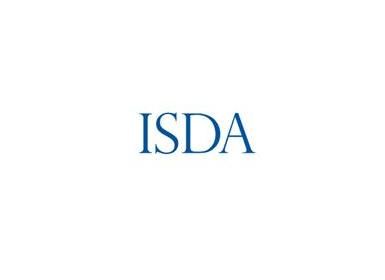The derivatives industry has proposed a detailed framework for the recovery of central counterparties in the event of a defaulting clearing member. ISDA’s latest contribution to the CCP default management debate comes as global regulators prepare new rules for the increasingly important infrastructure providers as large parts of the US$691trn over-the-counter derivatives market are mandated for central clearing.
Following last November’s high level CCP principles that called for greater transparency of risk management practices, ISDA adds further detail to those recommendations in its latest paper “CCP Default Management, Recovery and Continuity”. The proposals are consistent with those outlined last October by the Committee on Payments and Market Infrastructures and the International Organisation of Securities Commissions.
The industry body details a set of tools available to CCPs as they transfer the portfolio of the defaulted clearing member to non-defaulting members and re-establish a matched book, ultimately aiming to avoid taxpayer bailouts of clearing providers while providing appropriate protection to non-defaulting clearing members.
At the centre of the recommendations is the industry body’s belief that CCP recovery is preferable to its closure. As such, ISDA believes that recovery efforts should be maintained for as long as the default management process proves effective.
“We think the proposed recovery framework outlined in this paper offers a comprehensive and effective set of detailed measures to ensure a CCP’s ongoing viability,” said Scott O’Malia, ISDA’s chief executive officer.
The proposed mechanism begins with a voluntary portfolio auction of the defaulting member’s positions. If the auction is successful in generating bids, the CCP can then move through the pre-determined default waterfall including initial and variation margin of the defaulting member, the default fund contribution of the member, the first tranche of CCP contributed capital, and default contributions of non-defaulting members.
After those resources have been exhausted – something the Bank of England calculates as a one in 550-year chance – the CCP can make cash calls to non-defaulting members, which ISDA advises should be limited and quantifiable, and incorporated into the rule book so that failure to fund those commitments would constitute a default in itself. The second tranche of the CCP contributed capital would then be triggered.
While those stages are already relatively well defined by most major clearing houses, the loss allocation mechanism that follows is currently less transparent and requires clarification, according to the paper.
ISDA proposes pro-rata reduction of unpaid obligations of the CCP (PRO) – a form of variation margin haircutting for all members – and finally a partial tear-up of problematic contracts.
It notes an example in which a credit clearing service might comprise both index and single name contracts and in the event of an unsuccessful attempt to re-establish a matched book, could re-perform the default management process by individual sub-classes, continuing the process with the class that remains viable while tearing up contracts that prove problematic.
With an increasing array of asset classes now being mandated for clearing, ISDA reiterates the importance of segregated clearing services to mitigate the potential for contagion. In the US, standardised interest rate swaps and credit default swap index trades have already made the CCP leap, with plans for foreign exchange non-deliverable forward transactions currently underway.
In the event that the default management process (DMP) is not effective in re-establishing a matched book at any point in the process, the CCP may be forced to consider closure of the service.
“DMP failure is not contingent on whether pre-funded default resources have been exhausted or not: the test is whether the DMP is effective in attracting enough bids to cover the open positions,” ISDA said in the report.
